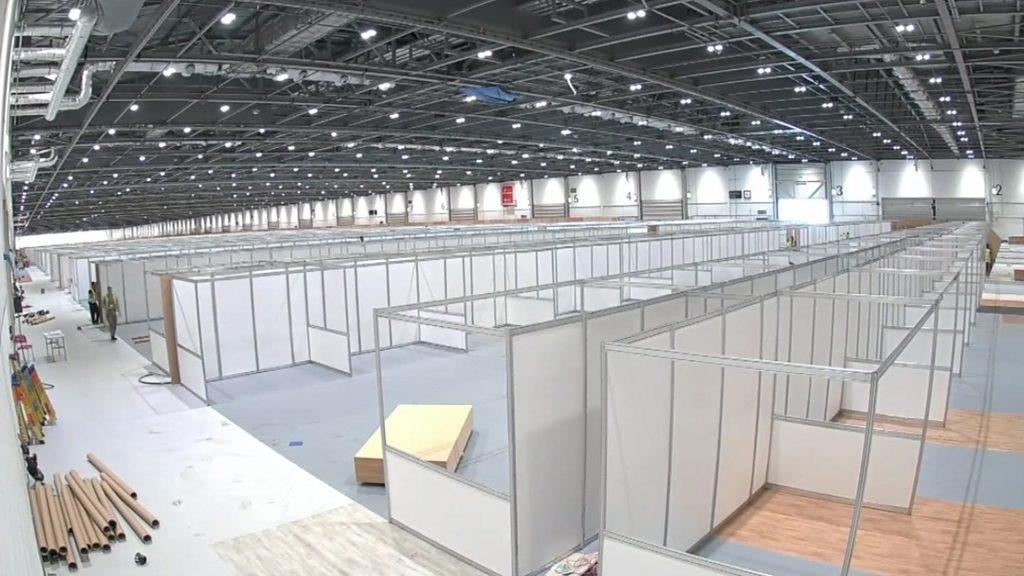Coronavirus: City Hospital to host NI's first Nightingale
- Published
- comments
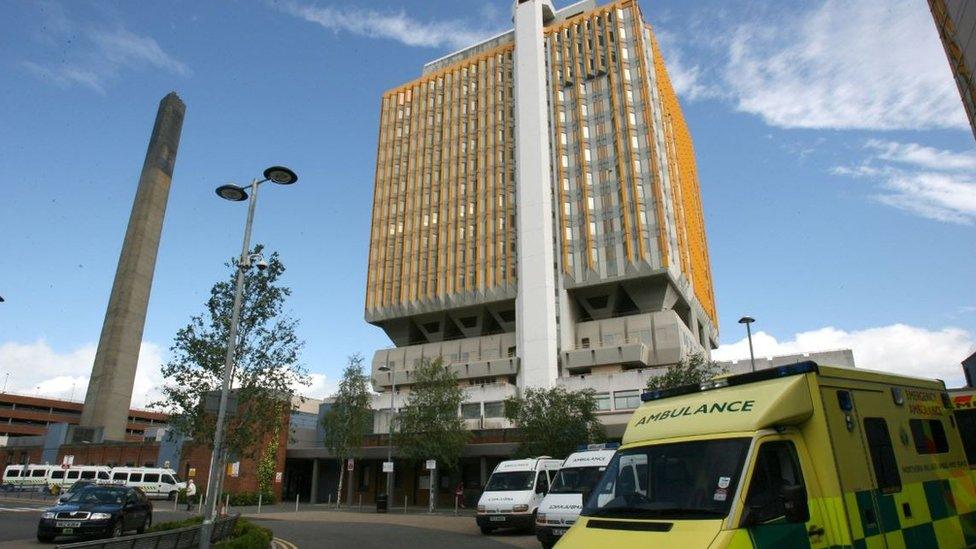
The distinctive tower block will become a 230-bed unit staffed by a team drawn from across Northern Ireland
Belfast City Hospital's tower block is being transformed into Northern Ireland's first Nightingale hospital.
It will become a 230-bed unit for critically ill patients, staffed by a team drawn from across NI.
Nightingale hospitals are temporary facilities being established around the UK to deal with the expected surge in coronavirus patients.
Department of Health surge plans also include further critical-care capacity at Altnagelvin and the Ulster Hospital.
Thirty-six people who were diagnosed with the virus in Northern Ireland have died so far.
Health officials expect to hit the peak number of cases between April 6 and 20.
Alteration work is already under way at the City's tower block and some non-coronavirus patients will have to be moved.

EASY STEPS: How to keep safe
A SIMPLE GUIDE: What are the symptoms?
CONTAINMENT: What it means to self-isolate
HEALTH MYTHS: The fake advice you should ignore
MAPS AND CHARTS: Visual guide to the outbreak
VIDEO: The 20-second hand wash

The facility will serve Belfast, Antrim and Craigavon which means that patients will have to be moved from hospitals as their condition changes.
The Mater Hospital in north Belfast, which is currently taking the city's coronavirus patients, will now be used for those who are not critically ill but still require hospital care.
NI's Chief Nursing Officer Charlotte McArdle said the logistics were extremely complicated and would need the assistance of voluntary ambulances.
Health Minister Robin Swann said he recognised the challenges these emergency arrangements would present for staff, with new ways of working and in many cases a new workplace location.
"I am determined we will do everything possible to support them and their colleagues across health and social care as they take on the many challenges that Covid-19 bring," he said.
"We owe them all a debt that can never be repaid."
The Royal Victoria Hospital will now be designated as a non-Covid hospital by the Department of Health, according to Northern Ireland's chief nursing officer.
Charlotte McArdle told the Good Morning Ulster programme that that department's surge plan would be implemented in stages, with the initial stage requiring patients being moved.
She said that two wards of patients had been moved from the City Hospital to the Royal in order to "make space for this work".
"Critical care patients require a high degree of monitoring and kit, and therefore the need for electrical supplies is increased as well. So that work has already begun to take place in Belfast City Hospital this week."
Eikon Centre 'a possibility'
On Wednesday, First Minister Arlene Foster revealed that a Nightingale hospital could be based at the Eikon Exhibition Centre in Balmoral Park.
This would have followed the model in England, with London's temporary hospital being set up from scratch in the city's ExCeL Centre.
The Department of Health said it was continuing to assess the potential of the Eikon Centre as a second Nightingale facility to further increase bed capacity later this year in preparation for a possible second wave.
Mrs McArdle said that the Eikon Centre was "still a possibility but could not be made ready by next week".
"We may need that facility later in the surge, or indeed if we have a second surge," she added.

However, for nurses who will be working at the Nightingale hospital, there are still major concerns over whether sufficient protective personal equipment (PPE) will be available, according to the head of the Royal College of Nursing in Northern Ireland.
Pat Cullen, who met with First Minister Arlene Foster, Deputy First Minister Michelle O'Neill, and Health Minister Robin Swann on Wednesday, said it was difficult to "express the fear and the anxiety" felt by nurses.
"The fear sometimes overtakes the science for people, and that is human - that is what happens with humans when they are placed in these situations," she said.
She said the meeting with ministers had been positive but that she did not receive assurances that sufficient PPE would be "readily available".
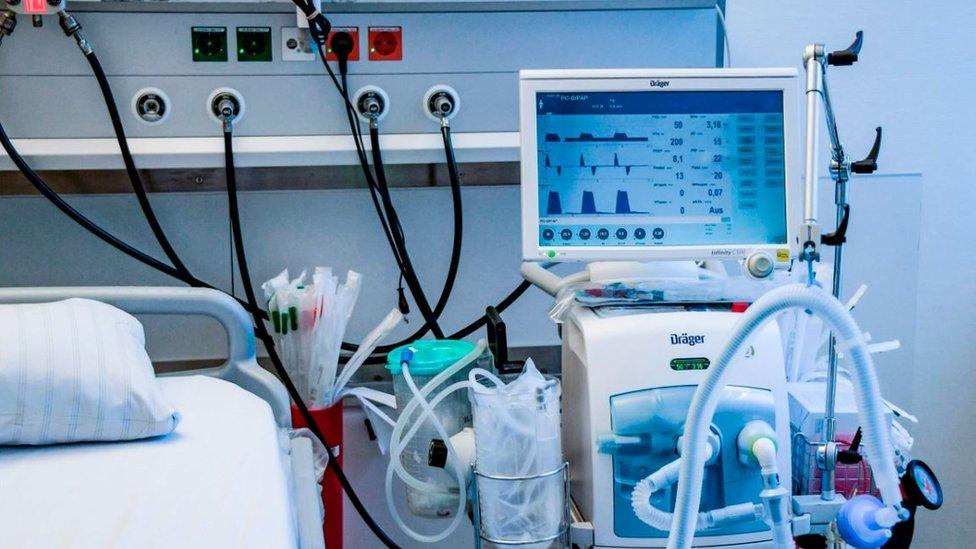
For patients with the worst effects of the infection, a ventilator offers the best chance of survival
On Wednesday, officials warned Northern Ireland could see 3,000 deaths in a "first wave" of the coronavirus pandemic over 20 weeks.
Expert modelling also indicated there could be second wave later in 2020 in the absence of a vaccine or sufficient population immunity.
Based on local data, the model sets out a "reasonable worst-case scenario", which assumes a two-thirds reduction in contacts due to social distancing and 70% of those with symptoms self-isolating.
Under these circumstances, the study suggests the peak hospital admissions would be around 500 per week.
It also indicates that 180 patients would need ventilation.
Ventilators
Northern Ireland has 165 ventilators available and Health Minister Robin Swann told BBC Newsline that 22 were currently in use for Covid-19 patients.
Chief Medical Officer Michael McBride said there was a further batch of the machines expected from a UK allocation, while more had been ordered from a company in Galway.
A further 650 units capable of providing respiratory support are also being procured.
For patients with the worst effects of the infection, a ventilator offers the best chance of survival.
So far 36 of the 774 people who have tested positive for Covid-19 in Northern Ireland have died.
The latest figures from the Republic of Ireland reveal a further 14 patients have died, bringing the total number of deaths there to 85.
In the UK, 2,921 people (out of nearly 34,000 who tested positive) are known to have died.
Meanwhile, it is understood an MoT test centre and Belfast's SSE Arena are to be re-purposed as coronavirus test centres.
- Published28 May 2021
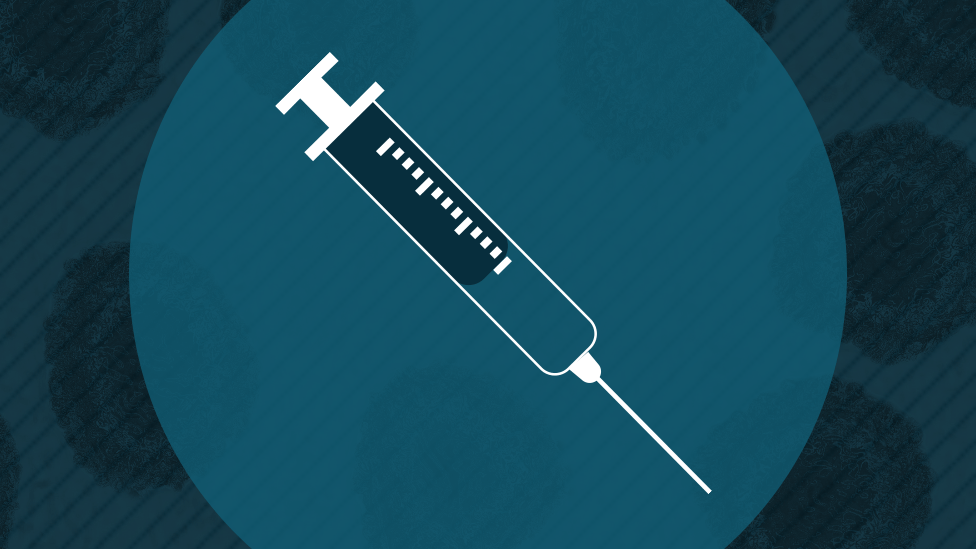
- Published3 May 2022

- Published13 March 2020
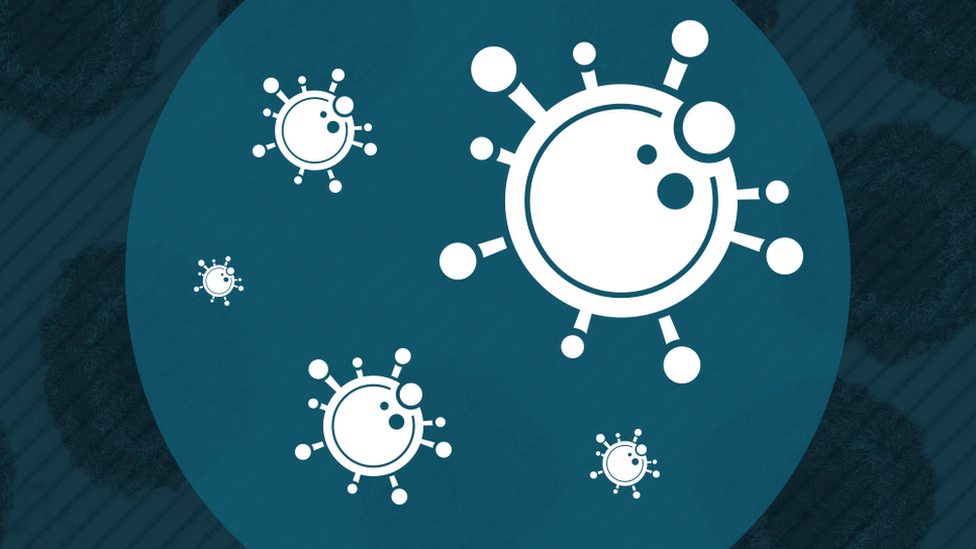
- Published6 October 2021

- Published16 April 2020
- Published1 April 2020
